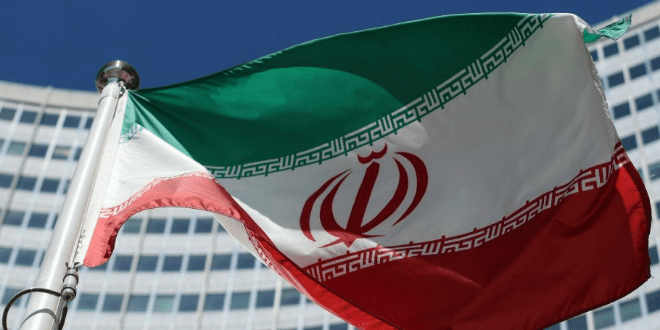While Armenian Prime Minister Nikol Pashinyan used his recent speech at the United Nations to tout his country as a “reliable partner,” new remarks by Armenia’s Foreign Minister Zohrab Mnatsakanyan and other geopolitical trends tell a far different story for both the U.S. and Israel.
Asked in an Oct. 23 BBC segment whether he would seek to “please” or “displease” the U.S. regarding Armenian policy towards Iran, Mnatsakanyan responded that Armenia is “of course faithful” to the Iranians. His comments came not only a month after Armenia announced plans to open an embassy in Israel, but also just several days before the Oct. 27 formalization of Iran’s membership in the Eurasian Economic Union (EAEU), the Russian-led trade alliance created with the objective to counter the influence of the European Union.
In joining the EAEU, Iran has gained the capability to export goods to that trade bloc’s nations (Armenia, Belarus, Kazakhstan Kyrgyzstan, and Russia) with virtually no tariffs. Of particular concern for the West is the one EAEU member, Armenia, which maintains a Deep and Comprehensive Free Trade Agreement (DCFTA) with the EU. Connecting the dots, the combination of Iran’s EAEU membership and Armenia’s economic status with the EU threatens to empower Iranian businesses with unprecedented ability to penetrate European markets. It’s a pattern the U.S. knows all too well, having imposed sanctions on two Armenian companies in August over their business ties with Tehran.
Bolstering Iran, the world’s leading state sponsor of terrorism, isn’t the only aspect of Armenia’s behavior that debunks the notion of Yerevan as a “reliable partner” for the U.S. or Israel. Armenia twice this year sent large teams of defense specialists and others to Syria under a purported “humanitarian” agenda, earning rebuke from the U.S. And in September, Lebanon’s defense minister revealed that his nation would share intelligence with Armenia regarding its experience destroying Israeli drones.
All the while, mainstream media continue to reinforce the near-celebrity status of Pashinyan, the man behind his country’s “Velvet Revolution.” But much like his claim on Armenia’s reliability, the hopeful words Pashinyan delivered first in Los Angeles Sept. 22, and then at the U.N. Sept. 26 represent nothing but a Hollywood fantasy.
“Our economy is growing steadily and quite rapidly,” Pashinyan told the U.N.
In actuality, the Armenian economy continues to be heavily dependent on agriculture and plagued with skyrocketing inflation. Moreover, it suffers from a severe brain drain. According to the World Population Review, there are around 3 million Armenians living in the country but another 8 million living worldwide, mainly in Russia and the U.S.
The Armenian economy remains heavily dependent on Russia. A 2018 report by Radio Free Europe showed that more than 26 percent of Armenia’s trade for the first half of that year was conducted with Russian companies. In the words of one of Armenia’s own politicians, lawmaker Aram Manukyan, Yerevan is “bypassed by all regional and international routes — transport, railway, oil, gas, any others.”
Pashinyan also used the U.N. stage to promote reforms that have never been made, stating, “Our determination to advance democracy and reforms is solid and uncompromising and unwavering.” But Armenia remains arguably the least independent of the post-Soviet states. Before he took office, Pashinyan reassured Moscow that Armenia would not withdraw from military and trade pacts with Russia. Subsequently, Pashinyan has deepened ties in all spheres and especially militarily, including by obtaining Russia’s Iskander ballistic missile system. Two Russian military bases continue to operate in Armenia and Moscow’s security forces are scattered throughout the country.
Still another myth floated by Pashinyan at the U.N. was his remark that, “The peaceful settlement of the Nagorno-Karabakh conflict is of crucial importance for the stability and the security of our region. Since my very first day in office, I have been taking steps in this very context.”
In fact, he has done the opposite, rejecting U.N. Security Council Resolutions 853, 874 and 884, as well as U.N. General Assembly resolutions 19/23 and 57/298, all of which describe Nagorno-Karabakh as part of Azerbaijan. Pashinyan continues to call for self-determination for the Nagorno-Karabakh region and insists that the unrecognized territory’s leaders be represented in future peace negotiations. Yet Azerbaijan could never consider affirming its own territory under international law as a separate and sovereign state.
The totality of Pashinyan’s hollow words on various geopolitical issues is neatly encompassed by his comments to the U.N. on Armenia’s relationships internationally.
“We observe with concern sets of disagreements among our friends, strategic partners, and allies,” Pashinyan said, adding, “We are doing our best to remain a reliable partner and a good friend for all of them without damaging our relations with any of them.”
Perhaps Moscow and Tehran can trust Armenia as their partner, but the U.S. and Israel should certainly be wary of any nation that pledges to be “faithful” to Iran.




